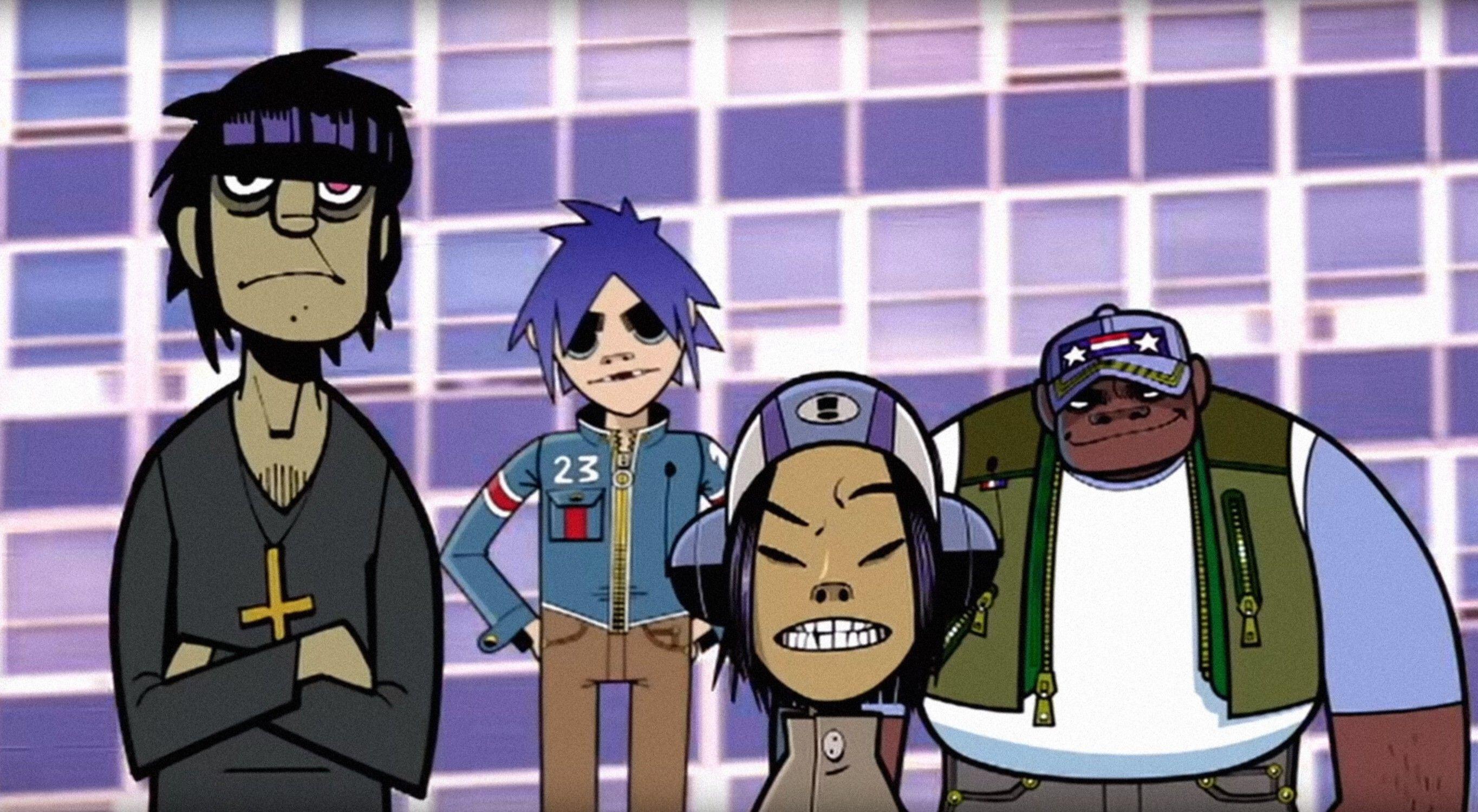So who is new Swansea head coach Francesco Guidolin when he’s at home?
Eh?! says Dylan Fahy – he’s only the cycling-loving tactical brain who oversaw Alexis Sanchez's biggest season at Udinese…
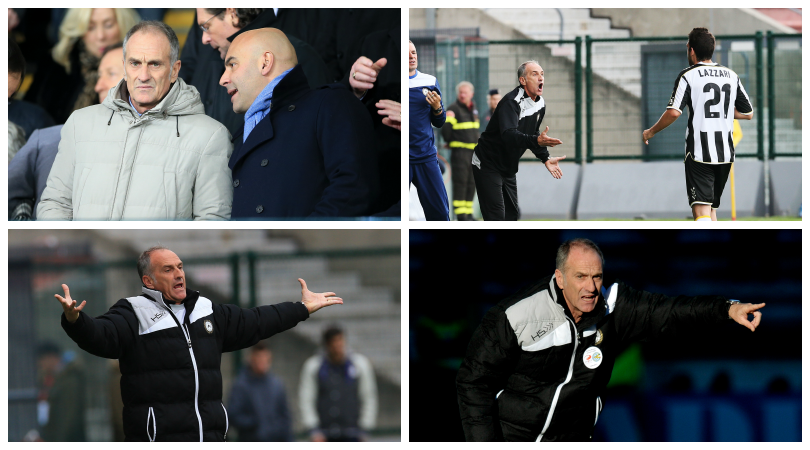
The irony of the situation Francesco Guidolin found himself in on Monday night wouldn’t have been lost on the new Swansea manager. As he watched Ashley Williams's header narrowly defeat Watford, the Italian must have spared a thought for Hornets owner Gino Pozzo, who he worked under at Udinese during the most successful spell of his managerial career. Guidolin was always more likely to become Watford boss for that very reason; his son Riccardo even works in their youth setup.
Date of birth: October 3, 1955 (age 60)
Place of birth: Castelfranco Veneto, Italy
Average managerial term: 1.37 years
Average points per game: 1.44
However, it was Pozzo’s decision to prioritise Watford over Udinese that contributed to his departure from Udine in 2014, which has ultimately led to his appointment at the Liberty Stadium.
The move has been greeted with cautious optimism in Swansea after a drawn-out process to eventually discover Garry Monk’s successor – but exactly who is he?
NEWS We had to Google Guidolin, says Swansea captain Williams
Early beginnings
Zamparini asserts that Guidolin will always be his “favourite son”, claiming he even went as far as to offer him his own role as president in the past
Swans supporters may be disheartened to find that Guidolin has had 17 different spells on the sidelines at a variety of clubs. However, he’s by no means the archetypal journeyman manager.
The Veneto native earned his stripes at several clubs in the lower divisions across the peninsula before guiding Ravenna to Serie B for the first time in their modest history in 1993. The promotion campaign instantly led him to a Serie A managerial opportunity with Atalanta. His first crack at the top flight was short-lived, however, and he was dismissed after a lacklustre start to the season. Yet the failure was ultimately a blessing in disguise: it allowed Guidolin to pitch up at Vicenza back in Serie B and truly establish his credentials as an adept tactician.
Get FourFourTwo Newsletter
The best features, fun and footballing quizzes, straight to your inbox every week.
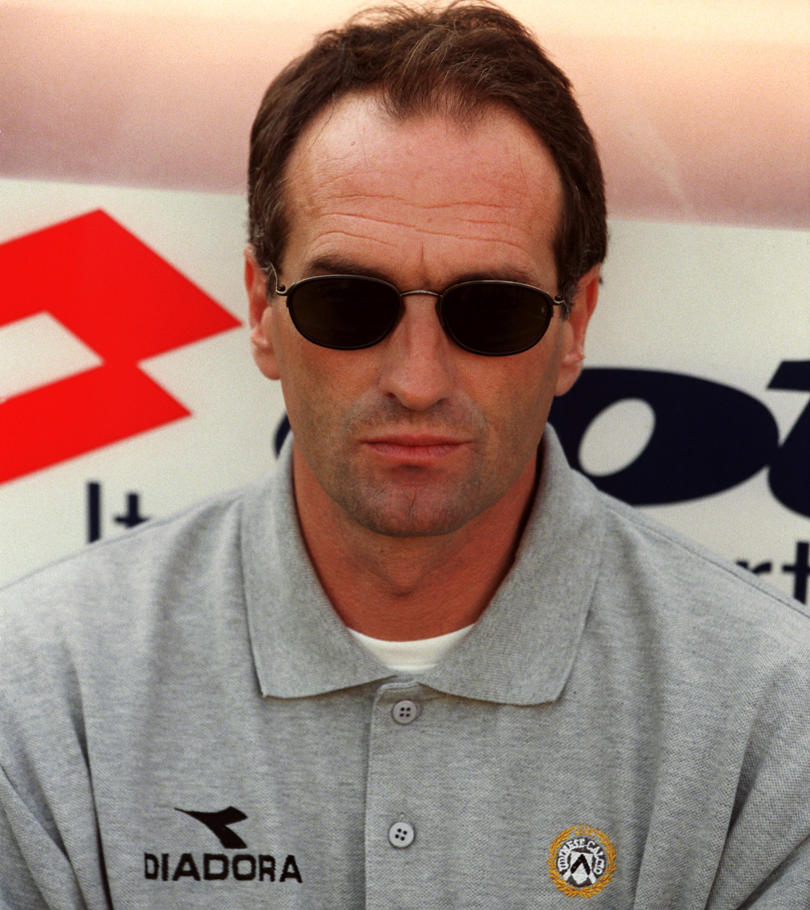
In his debut campaign, Vicenza won promotion to Serie A after 16 years languishing in the lower tiers. The Lanerossi finished ninth in 1995/96 season and Guidolin topped it off in his third year at the helm by beating Milan and Napoli en route to lifting the Coppa Italia. The incredible run continued into his final season as they made it to the semi-finals of the UEFA Cup Winners' Cup before eventually losing to a Chelsea side managed by Gianluca Vialli.
The subsequent decade brought mixed results at a variety of teams including Udinese, Bologna, Genoa and Parma, with the highlight being four separate stints at Palermo – the caveat that the Sicilian outfit’s infamous owner Maurizio Zamparini has sacked 29 managers since taking over in 2002. Guidolin is not the only boss to oversee multiple spells, but Zamparini asserts that he’ll always be his “favourite son”, claiming he even went as far as to offer him his own role as president in the past.

In 2005, Guidolin made his first and only other venture abroad with an uninspiring year at Monaco. His time in Ligue 1 is difficult to translate to Swansea’s current situation, but the fact that compatriots Christian Vieri and Marco Di Vaio failed to gel under his stewardship may be a sign that Swans chairman Huw Jenkins shouldn’t rely too heavily on the Italian transfer market.
Making his mark
After an outstanding effort, Guidolin was named manager of the season in Serie A, declaring: ‘I feel like a King in Udine’
Guidolin finally settled down again in northern Italy when he was appointed Udinese manager for the second time in 2010. He promptly fired the Friulani from 15th to fourth and a Champions League play-off berth aided by the 28 goals of captain Antonio Di Natale. After an outstanding effort, Guidolin was named manager of the season in Serie A, declaring: “I feel like a King in Udine.”
The team was a breathtaking combination of pace and physicality. Alexis Sanchez exploded onto the scene in attack, with Kwadwo Asamoah and Gökhan Inler adding steel in the middle of the park. Juan Cuadrado and Mauricio Isla were the creative outlets in the wing-back positions while Mehdi Benatia, Cristian Zapata and Samir Handanovic – who saved a remarkable six penalties over the course of the campaign – were the bedrock in defence. To this day, Udinese fans universally recognise the 2010/11 squad as the best collection of players their club has ever possessed.
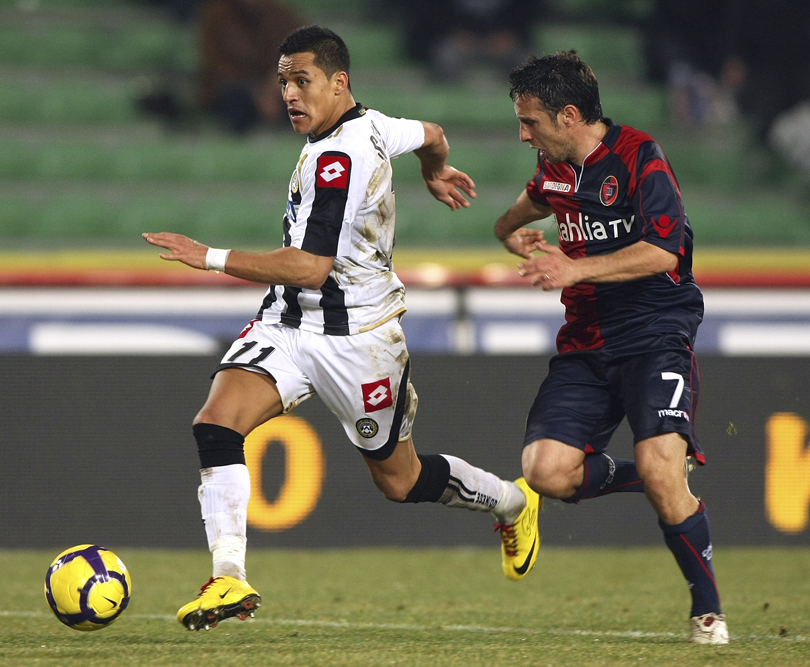
The Pozzo family relied on their vast and complex scouting system to make up the both Udinese’s squad and that of their La Liga outfit Granada – they purchased Watford the following year. Sanchez (Barcelona), Inler (Napoli) and Zapata (Villarreal) were cashed in to sustain the model and fund the development of the Stadio Friuli. However, this system meant a weakened Udinese line-up was narrowly defeated in the Champions League play-off against Arsenal in 2011 as Wojciech Szczesny saved Di Natale's penalty with the tie finely poised in the second leg.
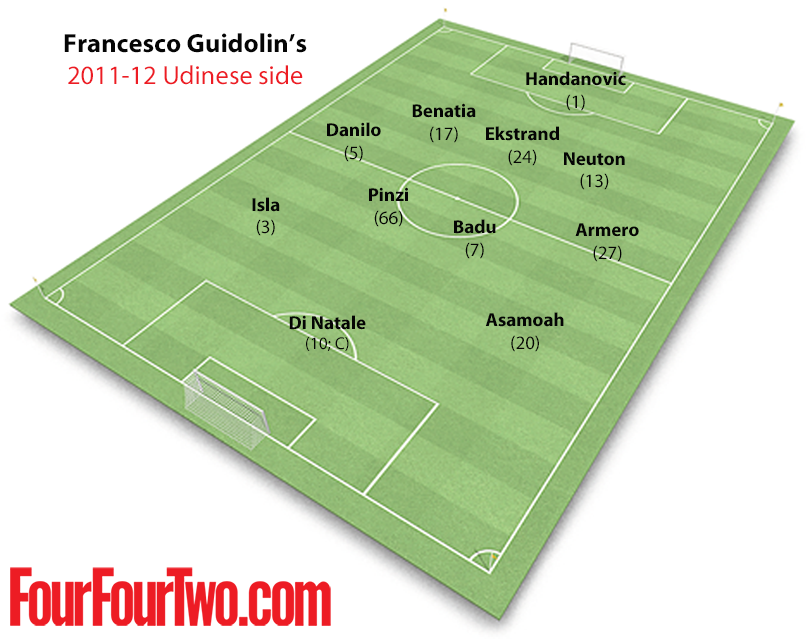
Despite his team being depleted and Serie A losing its fourth qualifying spot for the Champions League to the Bundesliga, Guidolin marshaled Udinese to a play-off for Europe’s top competition yet again by finishing third in 2011/12. However, heartache struck once more as the Friulani were defeated on penalties against Braga after new signing Maicosuel failed miserably with a panenka chip. “It was the worst moment of my life,” Guidolin reflected in an interview with La Repubblica in August 2015. “I suffered many sleepless nights afterwards. I was on the verge of resigning.”
Udinese did go on to defeat a Luis Suárez-led Liverpool at Anfield in the Europa League that year, but the Maicosuel miss was a defining point in the Guidolin-era. The Pozzo family began to focus on Watford while the manager saw his best players sold off for a second successive summer. Crucially, an ageing Di Natale’s powers were also waning.
Guidolin managed to deliver Europa League qualification in 2012/13 and a Coppa Italia semi-final the following year. However, they finished a disappointing 13th in the league and despite having a contract until 2017, Guidolin resigned as manager in favour of a role as a technical director, citing the stress involved on matchdays as his primary reasoning.
Tactical nous
Guidolin is a huge cycling aficionado and has even commentated on several stages of the Giro d’Italia for Italian TV
Guidolin is renowned as a studious, hyper-tactical mind who favours an attack-minded approach. He’s never been rigid to one single system and has overhauled his entire formation mid-season in the past. His stress may have been linked to this tendency to overanalyse. Additionally, he possesses the vital skill of being able to adapt the system to the players at his disposal.
The former midfielder isn't averse to using three at the back, which he went into detail on after spending four days as a guest of Pep Guardiola at Bayern Munich’s training ground last year: “I was pleased to discuss [Arturo] Vidal operating behind [Mario] Götze in a 3-6-1 system [with Pep]. That formation is the direction that the great teams are favouring with three defenders and only one pure centre-back. There are then many players making the midfield dense and lacking points of reference.”
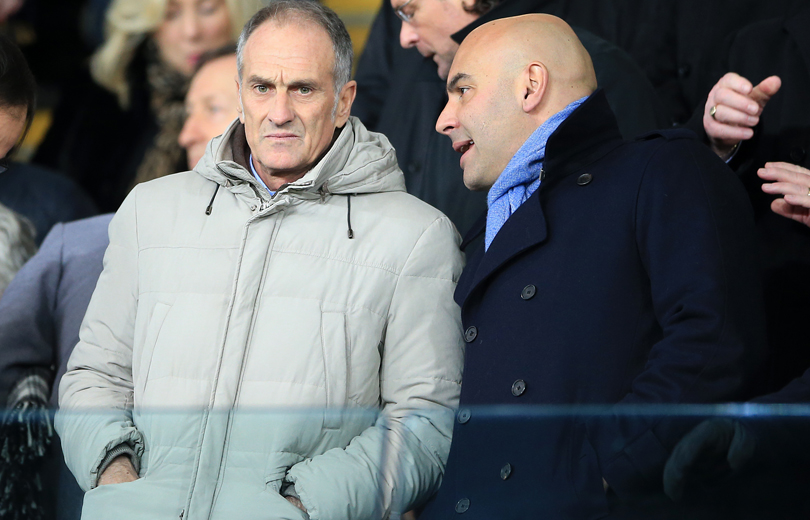
Swansea should expect an astute tactician capable of moulding the current crop better than the traditional British manager who commands all aspects of the club, which suits Swansea’s approach. The-60-year-old has unjustifiably never had a shot at a major Italian club, but he’s turned down Napoli in the past and explained in the summer that he’d have accepted the role at former club Parma, now in Serie D, as he’s “more interested in the project than the name of the club”.
It’s also well known in his native land that Guidolin is a huge cycling aficionado and has even commentated on several stages of the Giro d’Italia for Italian TV. Swansea fans should get used to bicycle-related analogies and terminology in his dealings with the media. After all, the Italian faces an uphill struggle to ensure survival in the Premier League.
RECOMMENDED
